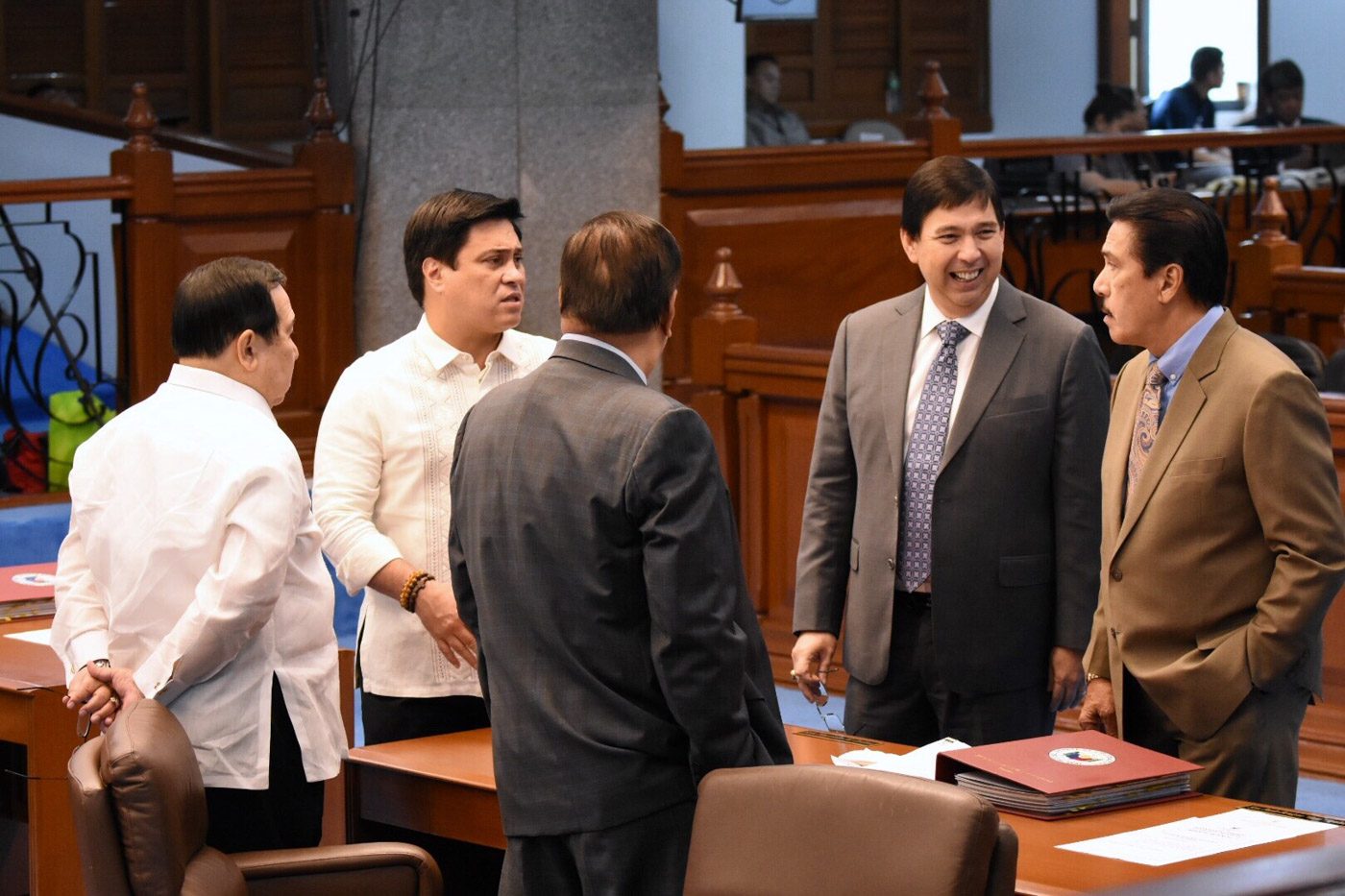SUMMARY
This is AI generated summarization, which may have errors. For context, always refer to the full article.

MANILA, Philippines – The Senate dissected one of the most difficult and controversial provision in the proposed Bangsamoro Basic Law (BBL) on the last day of session on Wednesday, May 30.
Senate BBL subcommittee chairman and Majority Leader Juan Miguel Zubiri said the period of amendments would continue, focusing on the contentious fiscal autonomy of the proposed region. The Senate is set to pass the BBL on final reading on Wednesday.
“We expect another long day. It’s all for the better version…. We expect proposals to increase provisions that will ensure transparency and public accountability,” Zubiri said.
Under the draft bill prepared by the Bangsamoro Transition Commission, the region would enjoy the “maximum form of fiscal autonomy” and would be authorized to prepare and pass its own budget. The region would get an unconditional annual block grant or share in internal revenue of P72 billion once the bill becomes law.
This is in stark contrast to the current scheme, where the Autonomous Region in Muslim Mindanao is required to get congressional nod for funds and projects.
Also immediately after the ratification of the BBL, and for another 5 years, the national government shall provide additional funds that would subsidize expenditure for development projects and infrastructure.
On Tuesday, May 29, senators ended their session at almost 1 am, with just half of the amendments discussed. These were mostly proposed by Senate President Pro-Tempore Ralph Recto and Minority Leader Franklin Drilon.
“Senator Recto promised questions and proposals in all of the 18 chapters. If last night is indicative of how things will be today, then I think the BBL will be a better document coming out of the plenary than when it first landed in the Senate,” Zubiri said.
According to Zubiri, the amendments discussed on Tuesday included the following:
- Bangsamoro “territory” is amended to Bangsamoro “territorial jurisdiction.” There will be further discussions on this.
- All provisions referencing to a sub-state status have been disposed of to clarify that the BBL is about an autonomous region like any other. The Philippine flag and “Lupang Hinirang” shall always be flown and played along with the Bangsamoro heraldic symbols.
- Senators Panfilo Lacson and Gregorio Honasan II polished the chapters on the Bangsamoro police. The Bangsamoro police is part of the PNP, with recruitment and promotions following what is nationally implemented.
- Military, national and Bangsamoro defense have also been made more explicit.
- The provisions on the judiciary and system of courts take cognizance and clarify the extent of applicability of the Shariah justice system on Muslims and non-Muslims.
- Land titling, management of protected areas and ancestral domains issues are also enriched and made more accurate with correlation to existing land, environment, and fisheries resources laws.
BBL should stand Supreme Court review
Drilon said the proposed BBL should be able to stand a judicial review, citing the Memorandum of Agreement on the Ancestral Domain (MOA-AD), which the Supreme Court declared as unconstitutional during the administration of president Gloria Macapagal Arroyo.
Drilon noted that it was particularly the wording of the MOA-AD that made it problematic, since its provisions vested the proposed Bangsamoro entity the status of an associated state, which is not recognized by the 1987 Constitution.
Drilon also moved to delete the provision on “reserved powers” for the new Bangsamoro Autonomous Region, given that the Constitution already provides for the residual powers of the national government and autonomous regions.
He cited Section 17 Article 10, which provides that “all powers, functions, and responsibilities not granted by this Constitution or by law to the autonomous regions shall be vested in the National Government.”
He also successfully moved for the inclusion of the provision reiterating “that the Bangsamoro people are citizens of the Republic of the Philippines.”
The BTC opposed the said amendment, which puzzled Drilon. He said his proposed amendment only reiterates the wordings of the Constitution on Philippine citizenship.
“This was introduced to prevent any misinterpretation that that there is a ‘Bangsamoro citizenship,’ because we are all Filipinos and we are all citizens of the Philippines,” Drilon said.
The senator also encountered stiff opposition to his proposal to introduce an anti-political dynasty provision for the Bangsamoro government, which was meant to reinforce the country’s efforts to address political dynasties and its effect on public governance. The matter was temporarily set aside.
Drilon also lauded and supported efforts made by senators Lacson and Honasan to ensure that the Bangsamoro police will be under one police force, the Philippine National Police. – Rappler.com
Add a comment
How does this make you feel?
There are no comments yet. Add your comment to start the conversation.